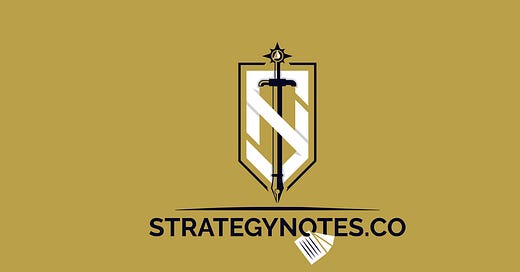This is about radical changes in reality and their impact on the strategist.
The example comes from fire. Canadian wildfires of this past summer, to be more precise.
The evidence is breathtaking, provided in a recent article by David Wallace-Wells. To set a baseline, about 10 percent of the world's forest is Canadian. And this summer, so much - so, so much of it burned.
Wallace-Wells writes, "By the end of September, more than half of the world's countries could fit inside the land burned this year in the Canadian wilderness." The previous modern-era Canadian record was 1989, when nearly 19 million acres burned. This year was over 45 million acres.
As one longtime wildland firefighter and fire chief put it, "There's no more, 'It can't do this' or 'It can't do that.'" He went on:
"It can't jump the Athabasca - that's a kilometer. And it did it, just as we were standing still. It can't burn down the town. It can's spread into the neighborhood. It can't jump the lakes. It can't go up that mountain in one day. It can't travel 30 kilometers overnight. All of these things. In my 30-year career, I never saw that - I've heard people say that almost every day this year. The unimaginable has to be imaginable now. You have to think that way."
Author and naturalist John Vaillant, who recently wrote the book “Fire Weather,” characterizes it this way, "We're in this really unfamiliar territory. Humans have always moved at a different pace than the natural world, but suddenly there's a syncing up, with the natural world now moving as fast or faster than we are - faster than humans, faster than technology, faster than history."
Let's unpack some of this. First, let's acknowledge we all develop mental boundaries for our given competitive landscapes. Edges, expectations, that build up over many many iterations of a given competition.
The other team generally does X, or that competitor prefers Y, and the adversary always goes for Z.
Rarely, but importantly, some day we will wake up to something else entirely. Something way beyond all the days before. Something new. Unexpected.
You'll be lucky if it's less lethal than last summer's Canadian wildfires. But that doesn't mean it won’t upend all assumptions, essentially throwing you off the mental map you’ve spent years charting.
There isn’t an easy way back to before. You can start with a question: Is this an aberration or a new reality? A blip on the old map or do we need a new one?
And then act accordingly. If you need a new map, then start making a new map.





Many thanks for the article. The landscape is always changing, and we must adapt. But when it comes to business strategy we need also to keep in mind that some things don't change. For instance, customers have the same 16 basic needs they had 100, 500, and 1000 years ago...